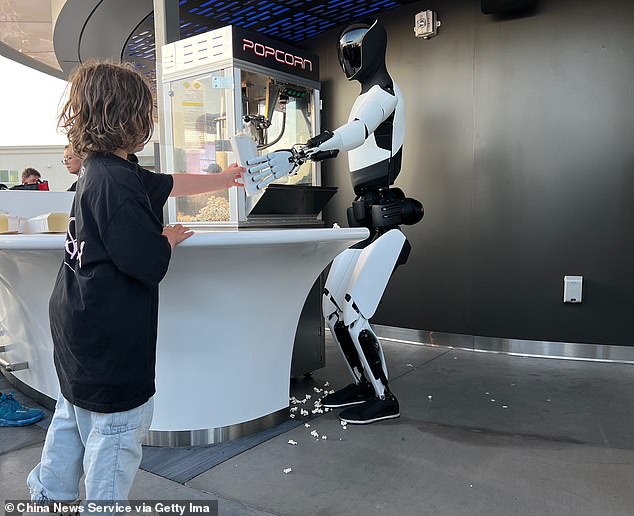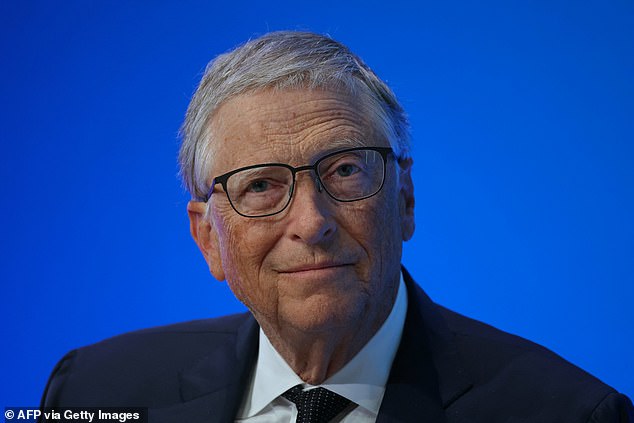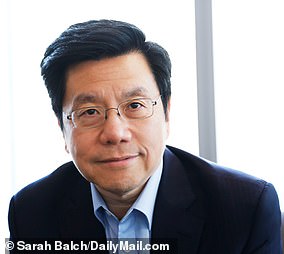While it might sound like something out of an episode of Black Mirror, scientists have warned that AI might be coming to take your job.
Microsoft researchers have revealed the 40 jobs most likely to be pushed out by artificial intelligence – and the 40 most likely to remain human.
And it’s bad news for anyone who has been brushing up on their language skills, since interpreters and translators are right at the top of the list.
Historians, writers and authors, political scientists, and journalists are also likely to face increasing automation in the coming years.
However, it isn’t just jobs involving reading and writing that could be on the chopping block.
The researchers found that professions which involve speaking to customers or helping people find information could also become increasingly squeezed out by AI.
That includes passenger attendants, sales representatives, and customer service staff, which collectively employ almost four million people in the US.
But there is good news for many skilled industrial workers, as dredge operators, bridge and lock tenders, and water treatment operators were all ranked among the least likely to be replaced.

Scientists have revealed the 40 jobs most likely to be replaced by AI. These include interpreters and translators, hosts and hostesses, and customer service representatives. Picture: Tesla’s Optimus robot serves popcorn at the Tesla Diner event in California
By looking at over 200,000 anonymised chat logs with Microsoft’s Bing Copilot AI chatbot, the researchers worked out which tasks people were using AI to help with most often.
Lead author Kiran Tomlinson, Microsoft senior researcher, and her co-authors write in their pre-print paper that these are ‘providing information and assistance, writing, teaching, and advising’.
By comparing these to the tasks involved in each profession, Ms Tomlinson calculated something she calls the ‘AI applicability score’.
This is not strictly a measure of how likely a job is to become automated, but rather a measure of how much each profession can make use of AI chatbots.
Although AI advocates argue that this AI-enhanced efficiency could lead to job creation, the authors acknowledge that layoffs are possible in highly applicable industries.
Ms Tomlinson and her co-authors write: ‘For example, if AI makes software developers 50 per cent more productive, companies could raise their ambitions and hire more developers as they are now getting more output per developer, or hire fewer developers because they can get the same amount done with fewer of them.’
That means the jobs most likely to see reductions in the workforce due to AI are those where AI might be the most useful, meaning those with the highest AI applicability score.
Even former Microsoft CEO Bill Gates has previously warned that AI is likely to lead to widespread job losses.

The research conducted by Microsoft researchers ranked jobs according to their ‘AI applicability score’. Although the researchers say this doesn’t necessarily mean these jobs will be replaced, former Microsoft CEO Bill Gates (pictured) has said that humans will not be needed ‘for most things’ in the future
Speaking on The Tonight Show in March, Mr Gates said that humans will soon not be needed ‘for most things’.
Collectively, the top 40 most at-risk professions employ 8,468,350 people in the United States alone.
That includes over 2.8 million people employed as customer service representatives, which have the sixth highest AI applicability score of any profession.
This list also includes a number of professions that seem highly unlikely to be replaced by AI, such as radio DJs and models.
However, last year the Spanish fashion brand Mango was slammed for replacing human models with AI-generated images in a campaign targeting teenagers.
Likewise, human podcast host Jakob Wredstrøm has created an AI clone of himself to host the ‘first AI podcast’.
Those jobs with the lowest AI applicability and the lowest chance of being replaced with automation are those requiring a high level of technical knowledge.
That means specialised industrial roles such as ship engineers, pile driver operators, cement masons, and floor sanders are especially resistant to AI replacement.

Radio hosts and DJs were listed as the profession 10th most likely to be replaced by AI. This comes after a YouTuber named Jakob Wredstrøm created an AI clone of himself to host the first AI podcast
Medical also ranked very low for AI applicability, with jobs such as oral surgeons, surgical assistants, and nursing assistants all being hard to improve with AI.
Other hard-to-automate professions include embalmers, dishwashers, supervisors of firefighters, maids, and roofers.
Collectively, the 40 professions least likely to be replaced by AI account for 5,554,930 workers in the US.
Ms Tomlinson told Windows Central: ‘Our study explores which job categories can productively use AI chatbots.
‘Our research shows that AI supports many tasks, particularly those involving research, writing, and communication, but does not indicate it can fully perform any single occupation.
‘As AI adoption accelerates, it’s important that we continue to study and better understand its societal and economic impact.’

